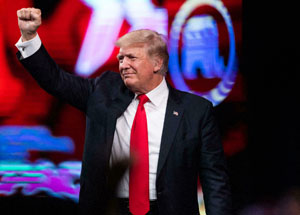Former President Trump Asks Federal Court to Order Twitter to Restore His Account

Report from the Washington Post
In Brief – Former President Donald Trump has filed a motion asking a US District Court Judge to impose a preliminary injunction on Twitter that would force the platform to restore his personal Twitter account as his legal case against the platform proceeds. The motion largely restates the case made in the former President’s initial lawsuit that Twitter (and Facebook and Google) were engaged in censoring him as directed by government officials and political opponents, violating his First Amendment rights. The new filing also cites Florida’s social media law, enacted by state Republicans that charge social media platforms with anti-conservative bias, which was blocked by a federal judge in July before it could go into effect.
Context – Twitter officials may take some satisfaction that while the former President has sued all three social media giants, he only filed the most recent motion to get back on Twitter. That said, there is nothing new to the underlying arguments. He is trying to make the case that the platforms were serving as government actors when they banned the head of the government. What the original suits, and the most recent filing, will accomplish is to stoke partisan outrage over social media bias that is held by most Republicans. In addition, as talk of the former President running again grows, the fact that he is absent from the platform that was central to his previous campaigns is likely personally frustrating and also noticeable to his followers. Regardless, two huge legal barriers stand in the way of efforts to stop platforms from moderating “political” content, whether through state laws or federal lawsuits. Sec. 230 is very clear in granting platforms flexibility in moderating user content and the chances that Democrats will agree to changes that stop them from policing figures like former President Trump is… unlikely. And the 1st Amendment rights of platforms to manage content on their sites is also clear. That said, criticism from legal minds like Justice Clarence Thomas will continue to prompt innovative legal and regulatory theories.
 Platform Economy Insights
Platform Economy Insights